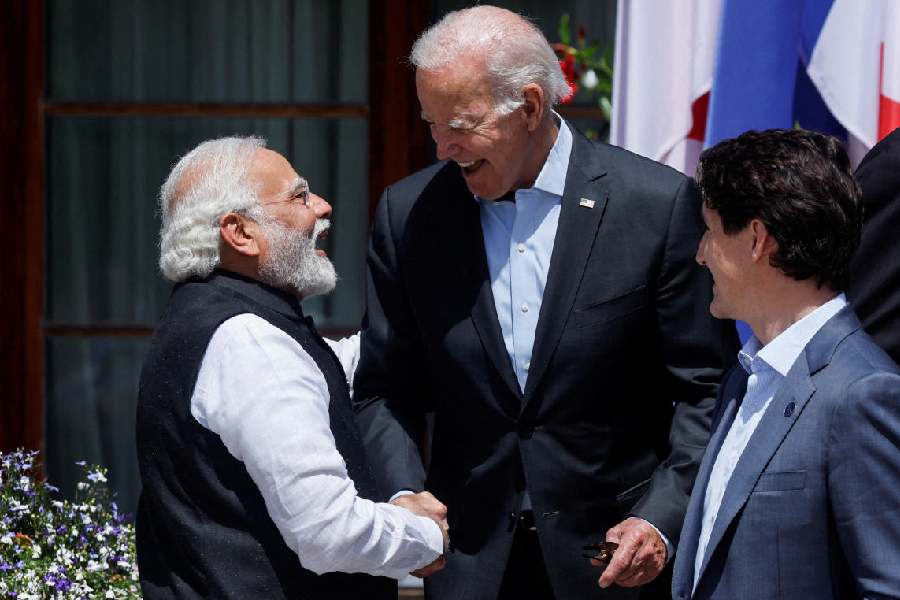The US and the UK have backed Canada in its battle with India over New Delhi insisting on 41 Canadian diplomats leaving the country to maintain parity in strength and rank with the Indian diplomatic presence in Canada.
The 41 diplomats left India earlier this week in keeping with the extended deadline of October 20 set by India, resulting in the temporary suspension of in-person operations at the consulates-general in Bombay, Bangalore and Chandigarh.
India had asked Canada to withdraw 41 diplomats in retaliation to Prime Minister Justin Trudeau’s allegation of an Indian government hand in the murder of Khalistani separatist Hardeep Singh Nijjar in Canada.
Reacting to the withdrawal of the Canadian diplomats from India, US state department spokesperson Matthew Miller said in a suo motu statement: “We are concerned by the departure of Canadian diplomats from India, in response to the Indian government’s
demand of Canada to significantly reduce its diplomatic presence in India.”
Miller suggested that resolving differences required having diplomats on the ground.
“We have urged the Indian government not to insist upon a reduction in Canada’s diplomatic presence and to cooperate in the ongoing Canadian investigation,” he said.
“We expect India to uphold its obligations under the 1961 Vienna Convention on Diplomatic Relations, including with respect to privileges and immunities enjoyed by accredited members of Canada’s diplomatic mission.”
The British Foreign, Commonwealth & Development Office (FCDO) too underscored that resolving differences required communication and the presence of diplomats in each other’s capitals. It disagreed with India’s decision to force the departure of Canadian diplomats.
“We expect all states to uphold their obligations under the 1961 Vienna Convention on Diplomatic Relations. The unilateral removal of the privileges and immunities that provide for the safety and security of diplomats is not consistent with the principles or the effective functioning of the Vienna Convention,” an FCDO spokesperson said.
“We continue to encourage India to engage with Canada on its independent investigation into the death of Hardeep Singh Nijjar.”
India’s external affairs ministry did not respond to queries relating to the statements from Washington and London, but New Delhi has been maintaining that its actions in implementing parity are consistent with Article 11.1 of the Vienna Convention on Diplomatic Relations.
The Article states: “In the absence of specific agreement as to the size of the mission, the receiving State may require that the size of a mission be kept within limits considered by it to be reasonable and normal, having regard to circumstances and conditions in the receiving State and to the needs of the particular mission.”
Sources who spoke to this newspaper rejected any attempt to portray the implementation of parity as a violation of international norms.
They underlined that Canada’s domestic legislation itself provided for comparable treatment of foreign diplomats in Canada to what its own diplomats received in a foreign country as well as withdrawal of any of their diplomatic privileges and immunities. The law in question is the Foreign Missions and International Organisations Act, 1991.
Further, the sources said that parity had been sought in the diplomatic representation of the missions in Ottawa and New Delhi, making Canada’s decision to cease the operations of three consulates “unilateral” and unrelated.










